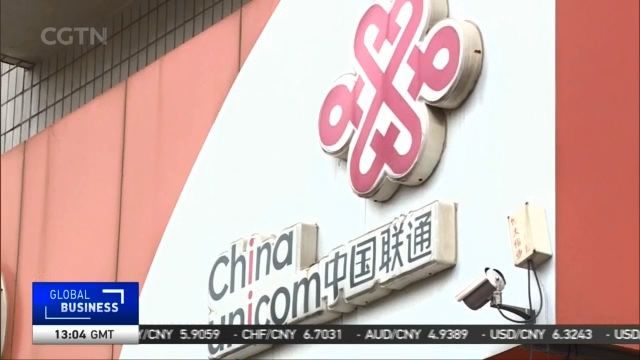
21:35, 28-Feb-2018
Chinese Reforms: China Unicom sets example for SOEs

China Unicom plans to add more star managers from the private sector to its board of directors, possibly including Baidu founder Robin Li. China Unicom is one of the leading lights of ongoing reform in China's state-owned enterprises. How might changes at the country's second largest telecom operator affect other SOE reforms this year? Mi Jiayi reports.
China Unicom's latest reform plan announced yesterday calls for hiring another 6 managers to join its board of directors. Notably, five of the eight candidates are not from China Unicom, but rather from Baidu, Tencent, Alibaba, JD.com and China Life Insurance. The move will be a further step following the company's decision last year to allow private investors to hold more than 35 percent of its shares, and followed that up with staff cuts in an effort to improve efficiency. And other state firms are following suit. Starting last week, China's three major airlines received the green light from government to relax the state domination of their share-holdings, allowing more investment from private and even foreign companies. One analyst says it all means further reforms to come in China's key industries.
PROF. ZHANG HUIMING SCHOOL OF ECONOMICS, FUDAN UNIVERSITY "Unicom's reform is inspiring others, like the aviation industry. The most important message is that we should change the situation in which state-owned shares control everything. If we don't do this there will be the old systematic problems and bad structural issues. Stronger private capital will push state capital to change its old ways and improve efficiency."
Zhang says there will be resistance to further reforms, however, primarily because some companies are not comfortable with the idea of letting in more private investment. One analyst says this is why more examples should be set.
SHAO YU, CHIEF ECONOMIST ORIENT SECURITIES "The government has named six or seven key industries for further reforms. Unicom now provides an example. I think coming up with more regulations is not the most important step right now, it is rather to use more and more successful examples in each industry to ignite the confidence of private companies, and to encourage them to participate in the SOE reforms."
Many expect that telecom industry will continue its lead in SOE reforms, with China Mobile and China Telecom soon to follow China Unicom's suit. Apart from carrying out reforms company by company, there are other experiments ongoing. By the end of 2017, Shanghai had set up an investment fund involving more than a dozen Shanghai SOEs. The fund aims at facilitating mergers and acquisitions in industries including new materials, new energy, environmental protection and technology development.

SITEMAP
Copyright © 2018 CGTN. Beijing ICP prepared NO.16065310-3
Copyright © 2018 CGTN. Beijing ICP prepared NO.16065310-3